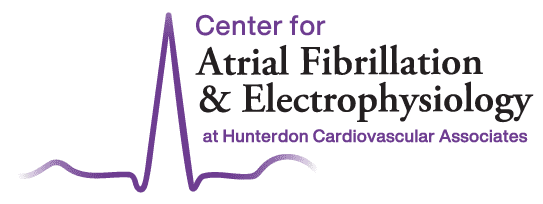
When your heart does not beat as it should, your body feels the difference. You may feel tired, dizzy, or short of breath. In some cases, your heartbeat slows down so much that it puts your life at risk. This is where a pacemaker can help. At The Center for Atrial Fibrillation and Electrophysiology, we help patients determine if this device is right for them and make every decision together.
What Is a Pacemaker?
A pacemaker is a small, battery-powered device that sits just under your skin, usually near the collarbone. It keeps your heart beating at a normal pace by sending small electrical signals when it senses that your heart is going too slowly or skipping beats.
Depending on the type of rhythm problem, your doctor may recommend one of several types.
- Single-chamber pacemaker: Supports one heart chamber.
- Dual-chamber: Controls two chambers to maintain a better rhythm.
- Biventricular pacemaker: Also known as cardiac resynchronization therapy, it is used for people with heart failure. It helps the lower chambers of the heart work together more efficiently.
At The Center for Atrial Fibrillation and Electrophysiology, we guide patients through these treatment options with care and expertise.
Common Heart Conditions That Require a Pacemaker
Your heart has its own electrical system. When that system stops working properly, a pacemaker might be necessary. There are several heart conditions that require a pacemaker, as discussed below.
Bradycardia
This is the most common reason people receive a pacemaker. This is when the heart beats too slowly, sometimes leading to fainting, fatigue, or even life-threatening pauses in rhythm.
Sick Sinus Syndrome
This condition affects the heart’s natural pacemaker, known as the sinoatrial node. This can result in erratic heartbeats, switching between fast and slow, and cause symptoms like dizziness, palpitations, or tiredness.
Heart Block
A heart block occurs when the electrical signals between chambers are delayed or stopped entirely. If this condition causes symptoms like fainting or chest discomfort, it often leads to pacemaker placement.
Heart Failure
People with heart failure may also benefit from biventricular pacemakers. This device helps the heart pump blood more efficiently when it is too weak or out of sync. In some cases, a pacemaker is used after a heart attack or transplant, especially when electrical disruptions put the patient at risk.
Certain medications, including beta blockers, may slow the heart too much. In those cases, a pacemaker allows you to keep taking the medicine safely.
Symptoms to Watch For
There are warning signs your heart may not be keeping up. These include:
- Unexplained tiredness or weakness
- Lightheadedness or dizziness
- Fainting spells
- Shortness of breath with mild activity
- Chest discomfort
- Heart palpitations
- Swelling in your ankles, legs, or belly
- Confusion or needing to urinate frequently at night
These symptoms can appear slowly or come on suddenly. If you feel any of them, your next step should be to speak with a heart specialist.
At The Center for Atrial Fibrillation and Electrophysiology, we provide a full evaluation using ECG, Holter monitoring, stress testing, and more to determine the cause of your symptoms. We use advanced tools and deep clinical experience to help you decide what comes next.
The Center for Atrial Fibrillation and Electrophysiology offers state-of-the-art care for complex rhythm problems. We focus on working with you, not just treating your symptoms. To schedule a visit, please contact us today.
